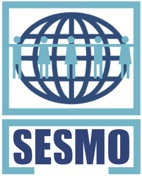The inaugural issue of Socio-Environmental Systems Modelling (SESMO)
Abstract
The world’s major environmental issues are wicked ones where: decision making and management is fraught with pervasive and deep uncertainties; stakes are contested between interest groups, government levels and industrial sectors; and cumulative scales and the dynamic nature of environmental and socioeconomic impacts need to be considered in assessing tradeoffs for supporting decisions. These issues are often framed as “socio- environmental” in nature and as grand challenges, due to the scale and severity of the issues, their complexity and uncertainty of interactions between humans and the environment. Integrated Assessment and model-based processes are essential as a scientific “meta-discipline” or “transdiscipline” that integrates disciplinary and sectoral knowledge about the relevant problem domain and makes it available for societal learning and decision making processes. In all socio-environmental investigations, conceptual and numerical modelling are essential to systemically integrate knowledge and opportunities - from all influencing sectors, interest groups and stakeholders in general. Modelling is also required to help assimilate and share knowledge, generate trust and improve adoption prospects. Socio-Environmental Modelling (SESMO) seeks to showcase innovations in model- based research toward resolving these grand challenge problems, thereby filling the niche of this rapidly evolving field of science.
Download full text in pdf format
 Published as:
Published as:
A. Jakeman,
I. Athanasiadis,
M. Haasnoot,
M. Janssen,
A. Voinov,
The inaugural issue of Socio-Environmental Systems Modelling (SESMO),
Socio-Environmental Systems Modelling, 1:16399,
2019, doi:10.18174/sesmo.2019a16399.
You might also enjoy (View all publications)
- Corn yield estimation under extreme climate stress with knowledge-encoded deep learning
- A virtual lab maturity model for guiding the co-development of advanced virtual research environments
- From general to specialized: The need for foundational models in agriculture
